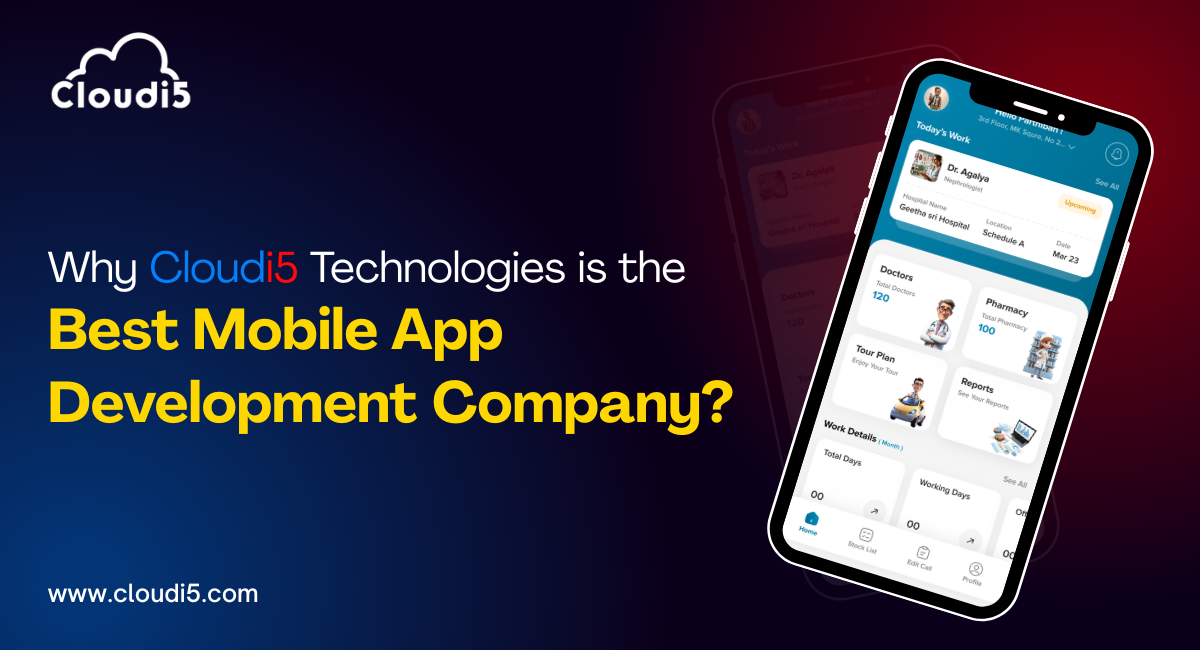
Why Is Flutter The Ultimate Choice For Your Mobile App Startup?
When Flutter was honored with the prestigious Best Cross-Platform Framework award, it experienced a moment of pure euphoria!...
Choosing the correct development framework for your mobile app business may be a key choice that directly affects the success of your enterprise. Google's Flutter has evolved as a key participant in the mobile app development industry in recent years, offering a number of benefits that make it a perfect choice for entrepreneurs.
In this blog, we'll look at why Flutter is the greatest choice for your mobile app startup, looking at its advantages, how it works, and how it compares to other popular frameworks like React Native.
Why choose Flutter for your mobile app startup?
Flutter has a number of benefits that make it an excellent choice for mobile app businesses. It enables developers to use a single codebase to create high-quality native interfaces for both the Android and iOS platforms. This significantly reduces development time and costs, providing a competitive advantage to entrepreneurs.
The hot reload functionality of the framework allows for faster development iterations, increasing productivity. Furthermore, Flutter's appealing UI components and exceptional performance enable a smooth user experience, which is critical for entrepreneurs trying to make a strong market impression.
A Cross-Platform Marvel
Flutter's primary strength lies in its ability to be a true cross-platform app development platform. It allows developers to create code once and run it across different platforms such as Android, iOS, web, and desktop. This cross-platform compatibility simplifies development efforts and assures consistent user experiences across several devices, saving entrepreneurs important time and resources.
How Flutter Works?
Flutter's widget-based architecture is at its heart. Flutter's widgets represent the app's visual components, and its reactive architecture enables immediate UI adjustments depending on code changes. The "Hot Reload" function allows developers to view real-time updates as they code, which speeds up the development process. Flutter's Dart language offers excellent app performance using Just-In-Time (JIT) and Ahead-of-Time (AOT) compilation.
A Boon for Mobile App Startups
Flutter is a wise choice for mobile app development startups with limited resources and time.
Startups frequently have limited resources and time, making Flutter a good alternative. Startups may avoid the expense of managing different development teams by using a single codebase for both the Android and iOS platforms. This simplified strategy results in cost savings and a shorter time-to-market, giving entrepreneurs a competitive advantage.
Capitalizing on Flutter's Package Ecosystem
The robust community of Flutter adds to the extensive package ecosystem.Without having to reinvent the wheel, these packages can assist entrepreneurs in expanding the functionality of their applications.
The Flutter ecosystem enables mobile app development companies access to a diverse set of technologies, expediting app development and encouraging creativity. Companies can construct apps more effectively with pre-built widgets, the hot reload functionality, and cross-platform compatibility, focusing their attention on innovative features and exceptional user experiences.
Flutter vs. React Native
Comparing Flutter with other popular frameworks like React Native is essential for startups. Flutter's advantages lie in its superior performance, native-like user experiences, and ease of use. The "write once, run anywhere" philosophy in Flutter extends to various platforms, whereas React Native's approach may involve platform-specific code for certain features.
Let's compare them in various aspects:
- Language: Flutter uses Dart, and React Native uses JavaScript.
- Performance: Flutter compiles native code for fast execution; React Native relies on a bridge, introducing slight overhead.
- UI: Flutter offers customizable widgets, and React Native uses native components for a more authentic look.
- Community: Both have active communities and growing ecosystems.
- Development: Flutter's hot reload is considered more seamless.
- Platform Support: Flutter supports more platforms (Android, iOS, web, and desktop).
- Learning Curve: React Native may be easier for JavaScript developers.
How does Flutter benefit startups?
Flutter benefits startups by offering a faster development process, reducing costs, and enabling a single codebase for multiple platforms. Its attractive UI capabilities and smooth performance ensure startups can deliver top-notch user experiences. Additionally, Flutter's active community support and constant updates guarantee long-term stability and access to the latest features.
Flutter's Future
Flutter has significant support as a Google service, providing continued support and continual advancements. Startups can be sure that Flutter will continue to lead mobile app development, giving them the advantage in a digital environment that is continually changing.
Google's involvement ensures that Flutter will continue to be a powerful tool for startups seeking success in the mobile app development company.
Conclusion
By choosing Flutter, startups can position themselves for success in the competitive world of mobile applications and provide users with a delightful app experience. So, if you're starting your mobile app journey, Flutter might just be the magic ingredient your startup needs to take flight.
Trusted By












Leave Comments